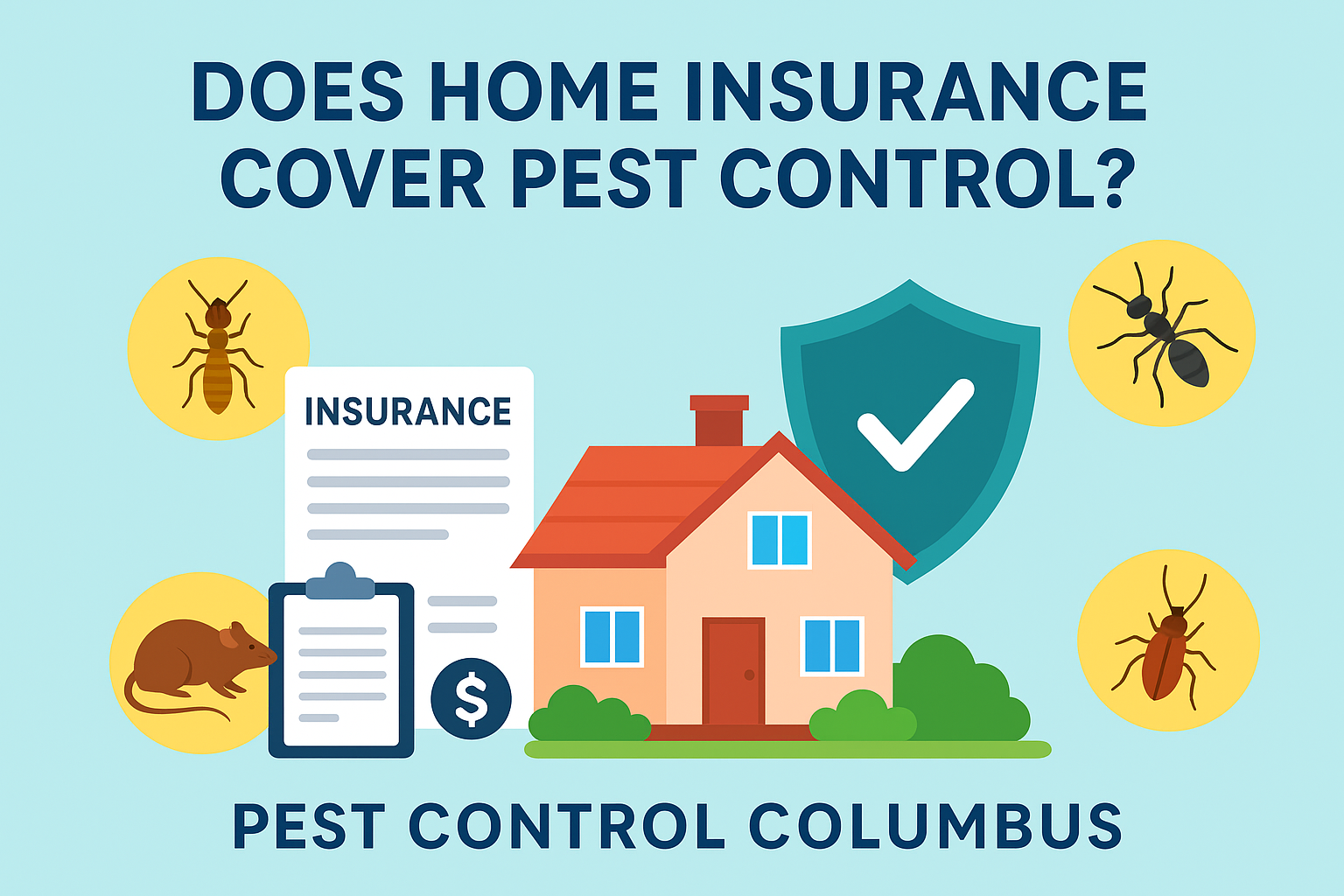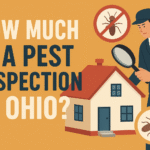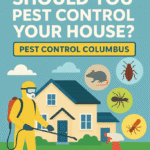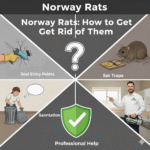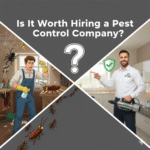Homeowners in Columbus often face an important question: Does home insurance cover pest control? Pests such as termites, ants, rodents, and other unwanted intruders can cause stress, damage property, and even pose health risks. While homeowners’ insurance provides financial protection against many types of damage, it usually does not cover pest control or pest-related damage. For residents seeking reliable solutions, Pest Control Columbus offers professional services to protect your home effectively. Understanding why insurance typically excludes pest control and what steps you can take can help keep your home safe.
Why Pest Control Isn’t Typically Covered
Insurance companies usually view pest control as a homeowner’s responsibility, similar to regular maintenance like cleaning gutters, fixing leaks, or repainting. Here are the main reasons pest control is not included in most policies:
Routine Maintenance: Home insurance is designed to cover sudden and unexpected events, not problems that arise from everyday wear and tear. Preventing infestations through proper care is considered part of a homeowner’s duty.
Preventable Issues: Insurers often exclude coverage for problems that could have been avoided. Leaving food exposed, failing to seal entry points, or not maintaining a clean environment can attract pests, which is why insurance will not pay for the damage.
Most policies assume homeowners will take proactive steps to prevent infestations rather than relying on insurance to handle them.
When Home Insurance Might Cover Pest-Related Damage
Although rare, there are situations where pest-related damage might be covered under certain circumstances:
Covered Peril: If a pest infestation results from a sudden and accidental event covered by your policy, such as a burst pipe leading to water damage or termites causing damage after a severe storm, your insurer might pay for repairs related to that event.
Severe Structural Damage: In extreme cases, if an infestation causes catastrophic damage, like a significant structural collapse, your insurance may cover repair costs.
These situations are exceptions, not the norm. Coverage depends on the specific wording of your homeowner’s insurance policy.
Steps to Protect Your Home from Pests
Since insurance usually does not cover pest control, prevention is the best approach for homeowners in Columbus. Here are practical steps to protect your home:
Review Your Policy Carefully
- Check the exclusions section to see what is not covered
- Look at the perils insured against section to understand what types of sudden damage might be included
Consult Your Insurance Agent
- Speak with your insurer or agent to clarify any uncertainties
- Ask if there are endorsements or additional coverage options for pest-related incidents
Implement Preventive Measures
- Schedule regular inspections for termites, ants, rodents, and other pests
- Seal cracks, gaps, and entry points in your foundation, walls, doors, and windows
- Maintain cleanliness and remove clutter to eliminate hiding places for pests
Hire Professional Pest Control Services
- A reputable pest control service can prevent infestations and protect your property from potential damage
- Professional inspections can identify vulnerabilities early, saving money and stress in the long run
Common Pests That Homeowners Face in Columbus
Knowing which pests are common in Columbus can help you take preventive action:
Termites: Silent destroyers of wood and structural materials. Termite damage can be expensive to repair.
Rodents: Mice and rats can chew wiring, contaminate food, and spread disease.
Ants: Some species, like carpenter ants, can damage wood, while odorous house ants invade kitchens and pantries.
Cockroaches: These pests carry bacteria and allergens and are unpleasant to live with.
Regular pest control can prevent these issues and minimise the risk of costly repairs.
Why Professional Pest Control Is Worth It
Hiring a professional pest control company in Columbus offers many benefits:
Early Detection: Professionals can identify pest activity before it becomes a serious problem
Customised Treatment: Experts tailor solutions to your home and the specific pests present
Long-Term Prevention: Regular treatments reduce the likelihood of future infestations
Peace of Mind: Knowing your home is protected allows you to focus on daily life without worry
At Pest Control Columbus, our team provides reliable and effective pest control solutions to safeguard your home and family.
Conclusion
Most home insurance policies do not cover routine pest control or pest-related damage because it is considered a maintenance responsibility. While coverage may exist in rare cases involving sudden events or catastrophic damage, relying on insurance is not a practical solution.
The best approach is prevention and professional intervention. By inspecting your home regularly, sealing entry points, keeping your property clean, and hiring trusted pest control services, you can reduce the risk of infestations and protect your home investment.
FAQs
- Can I add pest coverage to my homeowner’s insurance?
Some insurers offer optional endorsements for certain types of pest damage, but these are rare. Always check with your insurance agent. - What pests cause the most home insurance claims?
Termites and rodents are the most common, especially when they cause structural or electrical damage. - How often should I have my home inspected for pests?
A professional inspection at least once a year is recommended, though high-risk areas or older homes may need more frequent checks. - Does renters’ insurance cover pest damage?
Typically, renters’ insurance excludes pest control because it focuses on personal belongings and liability, not routine maintenance of the property. - How can I prove to my insurance company that pest damage was caused by a covered peril?
Document the damage with photos, reports from pest control professionals, and any evidence of the event that triggered the infestation, such as storm damage or plumbing failure.

